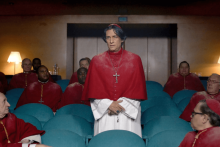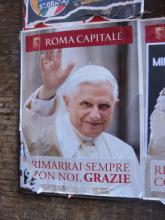new pope

TWENTY-FIVE YEARS ago, I visited the city of Chiclayo in northern Peru, then famous for its mercado de los brujos. Now it’s famous for producing Pope Leo XIV, new spiritual leader for 1.4 billion Catholics.
I was shocked when the conclave chose as pope Robert Prevost, a Chicago native and a Peruvian citizen. Prevost first went to Peru in 1985, when he was 30. After he served in various roles for his Augustinian order in northern Peru, Pope Francis appointed Prevost to the Diocese of Chiclayo, where he became bishop and served for nine years. Prevost worked with the Peruvian conference of Catholic bishops and on the conference’s economic council and commission for culture and education. In 2023, Pope Francis appointed him head of the Pontifical Commission for Latin America, putting Prevost in much closer contact with bishops across the continent. That same year, he became a cardinal. He is not “the first American pope”: Jorge Bergoglio, from Argentina, was. But Prevost, as the first U.S.-born pope, signals that Catholicism in the United States has come of age in the global Catholic Church.
Prevost-the-missionary-cardinal appears well-suited to institutionalize Pope Francis’ prophetic and expansive vision. However, Prevost-the-first-U.S.-born-pope seems more unpredictable.

Conclave’s message goes beyond papal elections: Before I saw the film, I couldn’t have predicted just how shockingly relevant it would be to me and my experience as a trans person still doing my best to remain in relationship with the church.

VATICAN CITY — Amid all of the prognosticating about who the cardinals could choose as the next pope in the conclave that starts here on Tuesday, one reliable thread has emerged: the desire to elect a pontiff who can be a pastor to the world as well as a taskmaster to the Roman Curia.
Finding such a combination in a single man, of course, may prove difficult if not impossible, which adds to the almost unprecedented level of uncertainty surrounding this papal election.
So if anything is possible, some say it might be better to reverse the prevailing wisdom — look for a pope who will talk tough to Catholics (and the world) while shepherding the Curia with a firm hand in order to better police the wayward.
The prospect might appall progressives and others who were happy to see the end of Pope Benedict XVI’s papacy, but it has enough appeal to conservatives that they are trying to make the case.
One reason for their sense of urgency is that Cardinal Joseph Ratzinger turned out to be more of a papal pussycat as Benedict XVI than the watchdog of orthodoxy that he had been for decades while serving under John Paul II.
Is now the time for a pope who could be more of a Ratzinger than a Benedict?